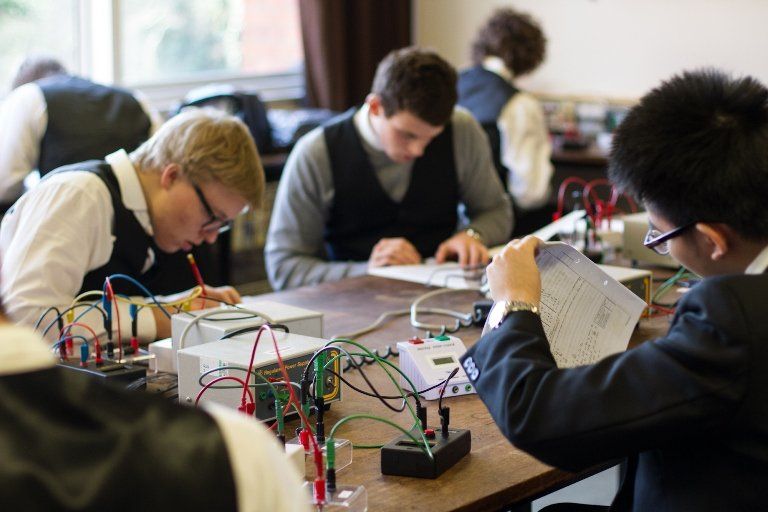Virtual Work Experience Services
Created by Careers and Work Experience Professionals
WHAT ARE THE DIFFERENCES BETWEEN SIXTH FORM AND COLLEGE?
WHAT DO THESE TERMS ACTUALLY MEAN?
In the UK there are three types of institutions that provide further education (FE):
- school sixth forms
- sixth form colleges
- further education colleges
Sixth forms offer a variety of A-level and BTEC qualifications and are attached to a secondary school, which is why they are often referred to as school sixth forms.
Sixth form colleges offer the same provision as a school sixth form however, they are separate from secondary schools. Unlike the latter, Further Education (FE) colleges offer a much variety of courses including access courses, higher education-level diplomas and often, bachelor’s degrees.
Colleges may also offer apprenticeships and other community provision. So, one way to think about it is that FE colleges are on one end of the spectrum and school sixth forms are on the other, with sixth form colleges being the middle ground.
Reasons for Choosing Sixth Form or College
Sixth Form
You are comfortable in a school environment and the way you are taught
The Sixth Form offers the subjects you want
You wish to gain three A Levels, which may not be available at College
You have the personal discipline to complete the required coursework
College or Sixth Form College
You are ready for a change of venue
The College offers the subject you want
Gaining a college qualification will take you to the next stage of your career
Bad reasons to make a choice
Your mates are going there
It seems like the easy option
You can't be bothered to look at all your options
Ways to help you choose
Go to Sixth Form and College Open Day
Listen to presentations and assemblies at school from Sixth Form staff
Attend school Career Fairs where all the colleges will attend
Look at your eventual career aim and research the qualification requirements
WHAT THE SIXTH FORM OR COLLEGE ENVIRONMENT IS LIKE
School sixth forms tend to be more formal places, as the site is often shared with younger students in years 7 to 13. The learning environment in a school sixth form can therefore already be very familiar to you, particularly if you’ve stayed on at the same place where you did your GCSEs. Teachers within a school sixth form may request that the same level of formality is retained in school, and students may still address their teachers as ‘Sir’ or ‘Miss’.
FE colleges provide a different learning environment to what you were used to at school. In FE colleges there are no students below the age of 16, and because they’re open to the community, there tend to be many students who are older than 16-19 studying there. Some FE colleges even have classes later in the evening to try and suit all learners.
The environment within an FE college is generally more adult-like, where students take responsibility for themselves and their learning. FE colleges tend to be slightly more relaxed when comparing them with school sixth forms, and students usually address their teachers on a first name basis.
On the other hand, sixth form colleges can be somewhat in between a typical FE college and a school sixth form. Sixth form colleges are typically more informal than school sixth forms and they often provide a wider range of courses when compared to them too. However, they are similar to school sixth forms in the way that only students aged 16 to 19 can study there.
When looking at the size of each type of institution, FE colleges and sixth form colleges tend to be larger than school sixth forms.
Want to know about Degree Apprenticeships?


